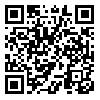Volume 13, Issue 5 (2022)
LRR 2022, 13(5): 391-419 |
Back to browse issues page
Download citation:
BibTeX | RIS | EndNote | Medlars | ProCite | Reference Manager | RefWorks
Send citation to:



BibTeX | RIS | EndNote | Medlars | ProCite | Reference Manager | RefWorks
Send citation to:
Qi J, Hemchua S. Analyzing the English Comic Version of The Analects of Confucius Based on Visual Grammar. LRR 2022; 13 (5) :391-419
URL: http://lrr.modares.ac.ir/article-14-63651-en.html
URL: http://lrr.modares.ac.ir/article-14-63651-en.html
1- Ph.D. Candidate, School of Liberal Arts, Shinawatra University, Thailand , 29720397@qq.com
2- Ph.D., School of Liberal Arts, Shinawatra University, Thailand
2- Ph.D., School of Liberal Arts, Shinawatra University, Thailand
Abstract: (2566 Views)
The Analects of Confucius is one of the representative works of traditional Chinese culture and has been translated into different versions. Tsai Chih-Chung's English comic version is one of the most popular among the different translated versions. It has a considerable potential to spread Chinese culture by multimodal means. A brief review shows that so far, there have been few studies on Tsai Chih-Chung's Chinese classic comics from the perspective of multimodality. This study applies the analytical framework based on Kress and van Leeuwen’s “Visual Grammar” to Tsai Chih-Chung's English comic version of The Analects of Confucius, attempting to explore how the visual modes realize three meta-meanings in the English comic version. Through the analysis, it is found that the images in Tsai Chih-Chung's English comic version fully realize the representational meaning, interactive meaning and compositional meaning. Furthermore, most of the images in Tsai Chih-Chung's English comic version realize more than just one meta-meaning, and more frequently include all three meta-meanings. By combining the texts and images organically, Tsai Chih-Chung's English comic version has been successful in attracting readers to read the classic, deepening the readers’ understanding of the classic and finally making them accept the cultural essence embedded in it. This study provides a case reference for the analysis of multimodal discourse in Chinese classic comics, and also contributes to optimizing Chinese classic comics’ design and innovation.
Send email to the article author
| Rights and permissions | |
 |
This work is licensed under a Creative Commons Attribution-NonCommercial 4.0 International License. |









